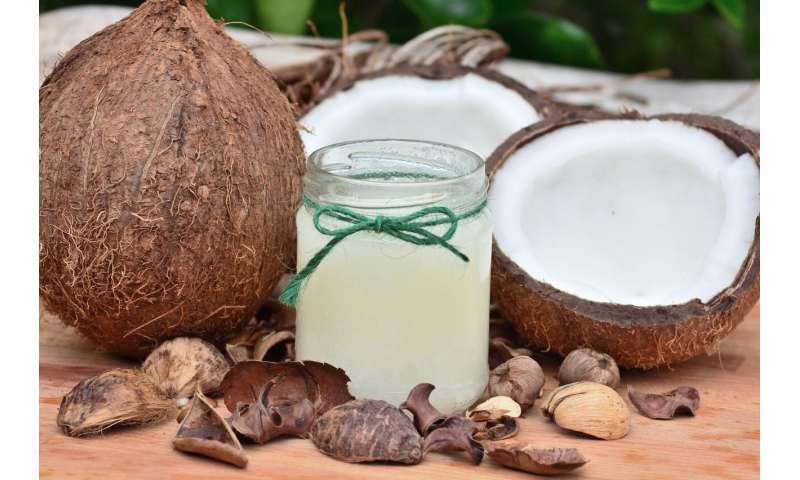Think coconut oil is good for your health? Here’s what the experts are saying

New research on the health affects of coconut oil adds to concerns about its link to cardiovascular disease.
In a new meta-analysis, published in the American Heart Association’s peer-reviewed journal Circulation, researchers reviewed 16 studies about how bodies react after eating coconut oil. They found that, according to the studies they evaluated, coconut oil significantly increased LDL (“bad”) cholesterol by about 9% compared with nontropical vegetable oils. HDL (“good”) cholesterol also increased.
“There is no evidence from medical studies that coconut oil is beneficial for health. In fact, high consumption of coconut oil increases LDL-cholesterol levels … which is likely to increase risk of heart disease,” said study author Rob M. van Dam of the Saw Swee Hock School of Public Health at National University of Singapore. The Singapore Ministry of Health paid for the analysis.
Donald Hensrud, director of the Mayo Clinic Healthy Living Program who is unaffiliated with the analysis, told U.S. TODAY the new data “strengthened the case that coconut oil is not the panacea” or cure-all that some people have claimed.
What is coconut oil?
Coconut oil is fat that comes from pressing coconut meat or dried coconut meat (copra). More than 80% of that fat is saturated fat—far beyond butter (63%), beef fat (50%) and pork lard (39%), according to the AHA. Virgin coconut oil is the least processed of available varieties.
Is coconut oil a health food?
Coconut oil has been marketed as a health food for several years. Low-carb, high-fat weight loss diets, including the keto diet, favor coconut oil, claiming it can help bust belly fat by inducing ketosis. Back in 2016, The New York Times asked people whether coconut oil is healthy and 72% said yes, but medical experts say there’s largely no good scientific data that backs up health claims.
In 2018, a Harvard professor called coconut oil “pure poison,” saying it’s one of the “worst foods you can eat.” While it’s not poison, most medical experts say it’s not a health food.
“I don’t think that we need to fear it or take it out of the diet completely, but there’s no need to be using it in excess or as the only oil in the diet,” said Ginger Hultin, spokesperson for the Academy of Nutrition and Dietetics.
A tablespoon of coconut oil is about equal to the amount of saturated fat adults should eat in one day, according to AHA recommendations. The World Health Organization also recommends limiting saturated fats.
“Until we get some good evidence, we should be suspect of claims that something is healthy,” Hensrud said.
Does coconut oil cause heart disease, stroke?
The AHA has advised avoiding coconut oil for years, saying in a 2017 advisory about cardiovascular disease that the oil “has no known offsetting favorable effects” and could increase risk of heart attack and stroke. It has held the same position on saturated fats for more than 30 years.
Some critics have challenged these longstanding dietary guidelines, questioning recommendations to limit eating saturated fat-rich foods including coconut oil, which also has antioxidant properties and increases HDL (“good”) cholesterol.
In 2014, the journal Annals of Internal Medicine published controversial research suggesting people who ate an increased amount of saturated fat did not have more heart disease than those who ate less. A 2015 BMJ review reported people who cut saturated fat might fill the void with sugar and empty calories, which could also cause health problems.
Source: Read Full Article


